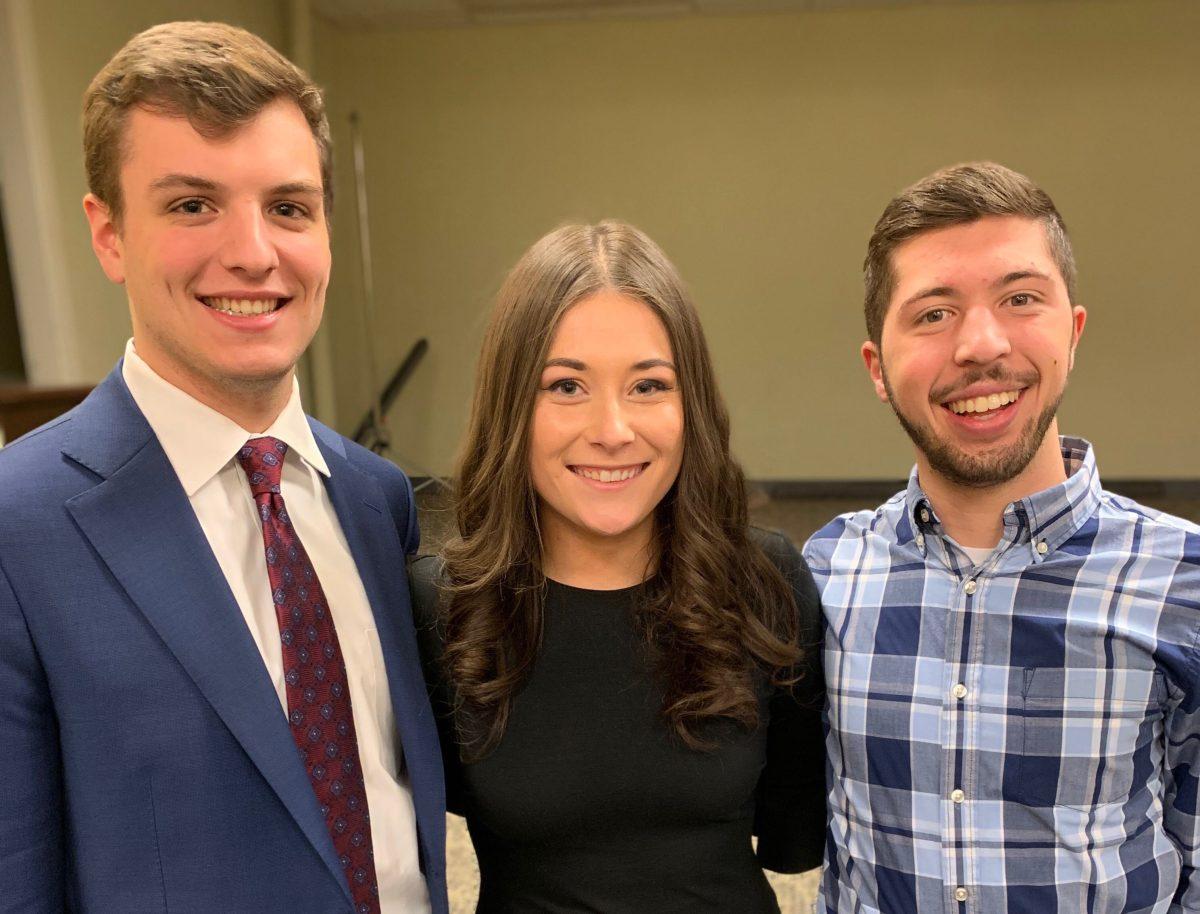Conference travel now funded
The university’s plan to fund student conference travel by converting its accrued frequent flyer miles into flight vouchers had a bumpy takeoff when the vouchers could not be redeemed.
Jason D’Antonio ’19, University Student Senate (USS) president, said the idea was initially proposed last semester by David Beaupré, vice president for finance & administration and treasurer, during a meeting be- tween Beaupré and other representatives from Student Senate. The meeting was planned to discuss increasing student need for student conference travel booked through Student Leadership & Activities (SLA).
“We did a comprehensive analysis of the needs of student organizations and our finan- cial resources,” D’Antonio said. “It turned out that the number three priority for students was attending conferences. To be quite honest, I couldn’t tell you the last time student leaders sat down with a treasurer and just explained the situation.”
Beth Hagovsky, Ed.D., SLA director, said she was surprised the university was willing to give its airline points to students. The Student Budget Allocation Committee (SBAC), though it covers registration fees and hotel stays, has never funded travel for conferences.
“It was a very generous gesture,” Hagovsky said. “It gave us the opportunity that when we knew there were organizations that wanted or needed to travel somewhere, we could then potentially supplement what SBAC would have given them for other things.”
But when the voucher program was tested last December before being rolled out to the entire university, SLA was not able to redeem the vouchers for any student flights. Hagovsky said she tried to use the vouchers for four separate flights for four different organizations: Student Senate, Student Union Board, Villiger Debate Team and American Marketing Association. All four times, the airline denied the use of the vouchers due to several specific restrictions.
“The airline kept saying, ‘There are no guidelines. You just have to keep checking with us,’” Hagovsky said. “I [was not] able to get a set of policies or guidelines around it.”
Student Senate was not aware either that the vouchers were rejected until they returned from their conference. Students whose flight vouchers were rejected were initially told by SBAC that they had to pay for their trip out of pocket or from their organizations’ budgets. University Procurement Services rectified the situation in late January after The Hawk inquired about the vouchers and made them aware of the rejected vouchers.
“I’ll be very upfront and say you brought that to our attention,” Barry Harte, assistant vice president for Budget & Financial Plan- ning told The Hawk. “We have since worked with the airline advantage agency to redeem them for certificates that are less restrictive. The catch, of course, is that there are fewer certificates since you need more points for the less restrictive airfare.”
Procurement Services contacted the air- line and changed the reward level to “anytime rewards,” which covers almost any flight, Harte said. However, this upgrade means the university will not be able to convert its frequent flyer points into as many individual vouchers.
“We were assured that because the university continues to use miles, we would have a healthy supply of points for students,” D’Antonio said.
The university’s revised frequent flyer rewards program, which D’Antonio said is intended to be a permanent solution rather than a one-time solution for a few select conferences, will be officially rolled out to all student organizations within the next two weeks. Organizations must submit formal requests to be considered.















































